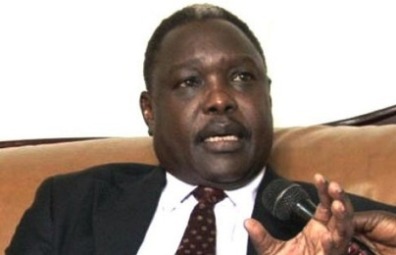S. Sudan proposes referendum to solve states impasse
December 7, 2019 (JUBA) – South Sudan government said Friday that the number of states, which has become contentious with the opposition, should be resolved through a referendum vote.

“Only a referendum can reverse the structures currently in existence to avoid crisis and insecurity that may even jeopardize implementation of the peace agreement,” he added.
The minister said the number states, boundaries and the security arrangements were key issues in discussions between the parties.
He, however, disclosed that South Sudan President Salva Kiir was opposed to the suggestion of returning the country back to the original 10 states. South Sudan currently has 32 states.
On Wednesday, parties signatory to the revitalized peace accord failed to agree on the numbers of states South Sudan should have.
Speaking to reporters after a two-day meeting of the parties in Juba, South Africa’s special envoy to South Sudan, David Mabuza said the parties were now considering two options on the number of states.
“We are going to finalize the issue of the states and boundaries in the next 10 days,” he said.
The meeting of the parties was attended by Mabuza and the Intergovernmental Authority on Development (IGAD) special envoy to South Sudan, Ambassador Ismail Wais.
Lam Akol, a member of South Sudan Opposition Alliance (SSOA) said they needed a win-win situation after the parties failed to reach a compromise on the number of states.
“We are likely to see between 10 and 32 states after what transpired during the meeting of the parties,” he remarked.
Early last month, President Salva Kiir and the country’s opposition leader Riek Machar agreed to delay key benchmarks in the peace agreement by 100 days.
The delay in forming a national unity government on November 12 came after Machar’s group raised concerns that the country’s security arrangements are still incomplete.
South Sudan descended into civil war in mid-December 2013 when President Kiir accused his former deputy Machar of plotting a coup, allegations the latter denied.
In September last year, the country’s rival factions signed a revitalized peace deal to end the civil war that killed tens of thousands of people and displaced millions.
(ST)
